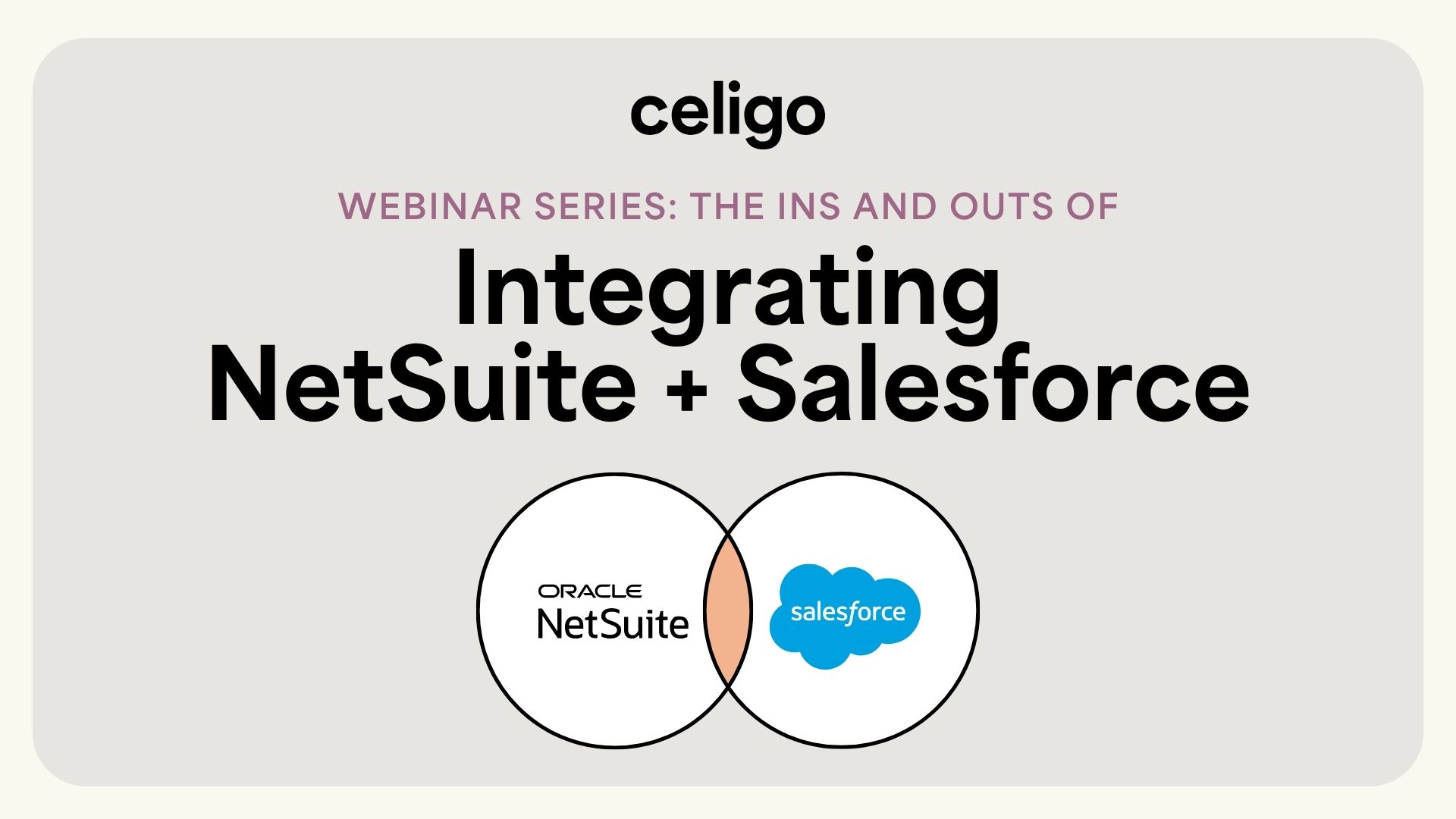Published Mar 18, 2024
How to choose the best integration solution for NetSuite

- Building a single source of truth with NetSuite can be a challenge.
- Address this challenge with an iPaaS or point-to-point integrations.
- Streamline processes and centralize data with advanced iPaaS.
Creating a truly single source of truth with NetSuite isn’t easy. If you’re using dozens of apps across your day-to-day operations, it’s challenging to get all that data into the software suite. And that’s before you even try to manage and maintain the integrations between your ERP and the rest of your tech stack.
Faced with this challenge, many organizations end up having to manually recover data from siloed, downstream solutions like their Customer Relationship Management (CRM) or Professional Services Automation (PSA) tools, then combine that with ERP data through manual coding.
And it’s not just one or two apps that companies need to build NetSuite integrations for. The reality is that most companies are using a patchwork of disparate applications (371 apps on average, according to 2023 research from Productiv). This provides flexibility in terms of capabilities, but also increases complexity and makes it extremely difficult to maintain top-down visibility.
The impact on the bottom line can be palpable for many businesses. Lack of visibility into the customer lifecycle drags down customer lifetime value. Manual workarounds reduce employee productivity, plus are error-prone or less reliable. And engineering resources are ill-spent on integration governance, instead of on pushing your business forward.
That’s why, the Celigo team has joined forces with Plative to solve the NetSuite integration challenge. Check out our on-demand webinar to learn from experts on setting up a fully
managed customized integration solution for NetSuite and the rest of your tech stack
Keep reading for a high-level overview of the solutions our experts discussed.
Solving NetSuite integration
Having a centralized platform to manage integrations between applications and NetSuite creates business value. Processes get streamlined, siloes are removed, and engineering maintenance hours are reduced.
But successfully maximizing that value long-term isn’t a given. To do so, you have to integrate data from NetSuite and third-party apps in a way that supports company growth and productivity throughout your company’s lifecycle. There are a few ways to approach that integration, from code-heavy customized solutions to advanced iPaaS.
Advanced iPaaS
Integration platform as a service (iPaaS) solutions offer cloud-based platforms that centralize integrations between various applications, including NetSuite.
Advanced iPaaS solutions leverage artificial intelligence (AI) and machine learning (ML) to handle errors and speed up integration design. They also come with pre-built integration connectors, so tech-savvy business users across the company can deploy and manage business process automation themselves (your engineering team is breathing a sigh of relief right now…).
This makes iPaaS a strong fit for many companies integrating data into NetSuite. The prebuilt connectors for NetSuite facilitate a quick roll-out, and end-to-end process automation removes friction.
And while advanced iPaaS platforms are basically plug-and-play, some strategic planning goes a long way toward ensuring a robust integration environment that scales as your company does.
“To ensure the long-term value of your NetSuite integration, it’s crucial to plan for its maintenance and select an iPaaS tool that enables you to adapt and modify it as your business grows,” says Greg DelGenio, CRO at Plative, which provides platform-agnostic integration advice. “Without internal support, even the most robust integration will lose its effectiveness over time.”
Hear more from the Plative team on iPaaS set-up and maintenance with our webinar, “Choosing an integration solution for NetSuite: What’s best for you?” If you’d like a sneak peek, check out this video to learn more about the benefits of advanced iPaaS.
Traditional iPaaS
Traditional iPaaS solutions provide developers with a platform they can use to integrate data from third-party apps and services, like advanced iPaaS. But unlike their advanced counterparts, traditional solutions are not accessible to business users who lack technical knowledge. This creates a need for ongoing dedication of tech resources.
Point-to-point integrations
Point-to-point (P2P) integrations are a useful tool for enabling two applications to exchange data back and forth in a timely and more reliable way, usually through custom coding, an API, or a mix of both. In P2P integrations, there’s no software sandwiched between the two apps receiving and sending data. Simple and efficient, but only if you have a handful of apps to integrate.
The downside is that you have to manually code integrations for each app you want to integrate with NetSuite. For a company with large volumes of data to integrate, P2P is an unwieldy solution because it requires individual manual work on each integration for both set-up and maintenance.
This solution isn’t just expensive and time-consuming; it also stymies the ability to scale. Unscalable architecture means that changing one line of business logic can take days or weeks to roll out manually depending on the complexity of the integration or your overall tech stack. That means it can take months before a working application is built, compared to a matter of days when using an advanced iPaaS.
Hear what Senior Director of NetSuite Sales at Plative Jeff St. Louis has to say about the limitations of
point-to-point integrations.
Making the right decision
SaaS sprawl is real. Collecting, managing, and gleaning useful data from across the tech stack
only gets harder as companies grow. NetSuite can be a great hub for all your key business data, but only if you’re pulling in information from third-party apps in a scalable, streamlined, and accessible way.
While there’s no one-size-fits-all approach, using an advanced iPaaS can help many companies streamline business processes and centralize data. As DelGenio says, “Any organization that wants to maintain a multi-point integration with clicks instead of code should seriously consider an advanced iPaaS tool.”
Watch our on-demand webinar now to find out how you can integrate your
data with NetSuite.



